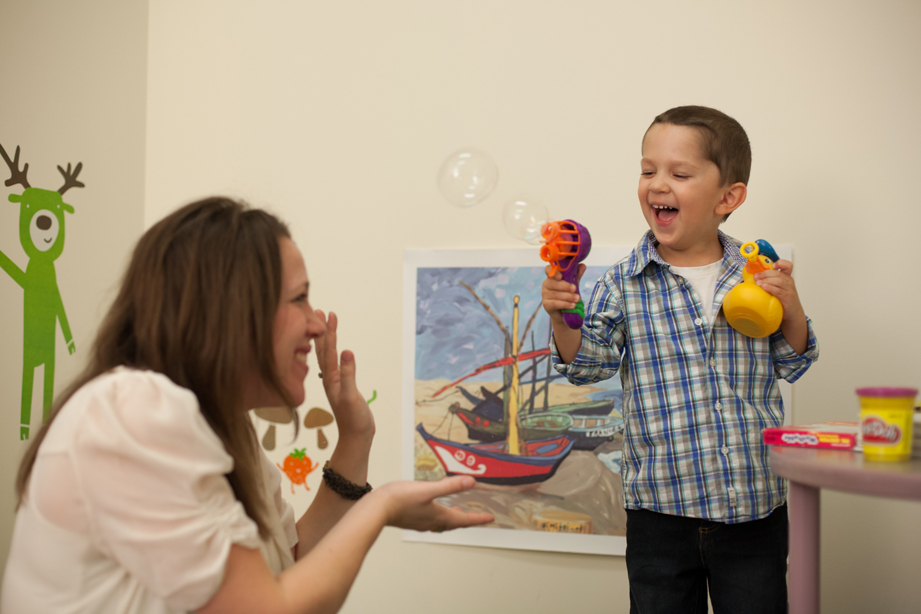Social ABCs Community Translation and Dissemination
Project Category: Projects – Cycle II
January 5, 2021

Challenge
Once one can confirm the diagnosis of Autism Spectrum Disorder, most Canadian provinces and territories offer government-funded interventions. However, because of long wait lists—first for diagnosis and then for treatment—intervening during the early years of life is virtually impossible for many families.
Project Summary
Network researchers aimed to change this reality when they developed Social ABCs, a program for preschoolers who show early signs of ASD or social-communication delays. With guidance from trained coaches, parents learn to promote shared attention and speech—the building blocks of communication—through everyday activities and interactions. For example, they might hold up a toy, say its name and encourage the child to repeat the name before handing it to them. Details about these strategies are summarized are summarized in an engaging, illlustrated manual, the development of which was supported by KBHN.
Social ABCs allows a child to make progress while awaiting diagnosis and formal therapy, during the critical stage when their brain is at its most “plastic” (capable of reorganizing itself). Boosting social skills before the child enters school also lowers their chance of facing mental-health health issues such as depression or social anxiety.
Result
A randomized control trial showed that Social ABCs could increase toddlers’ tendency to vocalize—both in response to their parents’ words and of their initiative. It also improved their mood and social orienting (attention to social stimuli such as smiling).
In tandem, the project leaders investigated whether it would be feasible to extend Social ABCs beyond family homes into the community-based settings where young kids spend most of the rest of their time. They partnered with daycares run by Humber College School of Health Sciences in Toronto, training early childhood educators to use the program’s techniques. These participants were able to master the vast majority of these techniques after a workshop and 12 weeks of live coaching.
All of these promising results positioned Social ABCs for broader dissemination across the country and beyond, especially after the Ontario Ministry of Children and Youth Services selected it as one of four early-ASD interventions to be evaluated for a potential province-wide rollout.
Funding
This subproject was part of the larger “ASD Program: Optimizing Development and Outcome in Children and Youth.” The ASD program was funded a total of $1,142,681 from the Kids Brain Health Network and $794,987 from participating partners.
Team
Principal Investigators
Jessica Brian, University of Toronto
Co-Investigators
Susan Bryson, Dalhousie University
Isabel Smith, Dalhousie University
Lonnie Zwaigenbaum, University of Alberta
Partners
Humber College School of Health Sciences